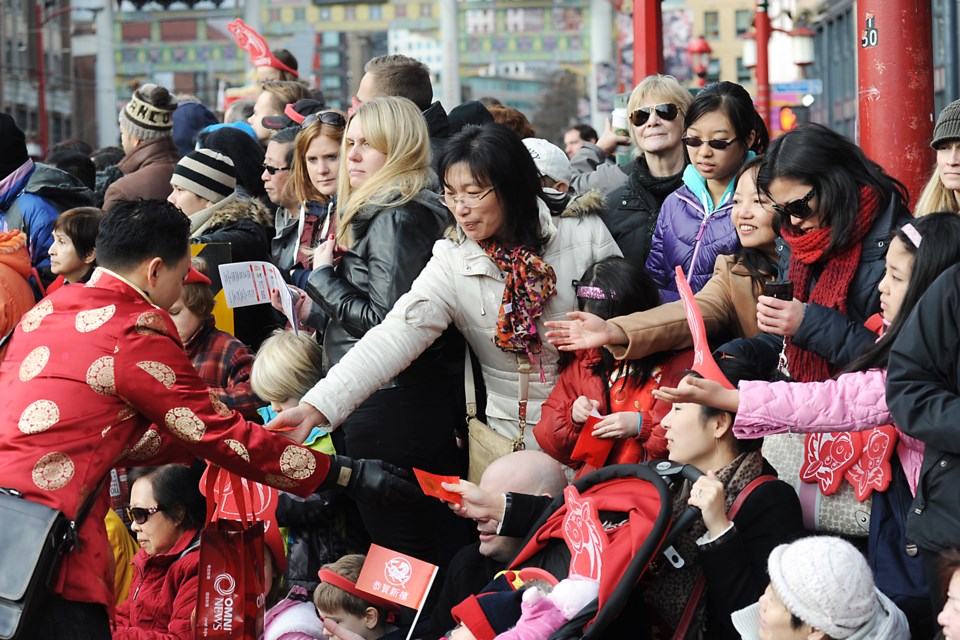Asian Heritage Month last month had a variety of activities across the country, particularly in Vancouver. We should continue to acknowledge the contributions of individuals and communities of Asian ancestry to this city, this province, and country.
For far too long, the place of individuals of non-European ancestry in Canada was given short shrift or altogether marginalized, along with the oppression of indigenous peoples. Some would argue that we have not yet gone far enough in getting to a fully post-colonial reality in Canada and, others are uncomfortable at the pace of demographic change and have prompted discussions regarding the city’s ability to absorb change economically and culturally.
But what do we mean by “Asian” and “heritage,” and how can we broaden these concepts to fit the reality of life in Vancouver today? The term Asia, in particular, is an interesting one given that there is a single Eurasian continent. Where do we draw the boundaries between Europe and Asia and do we even need to do so?
For years, scholars tried to separate the two by tracing a fictitious line through the Urals or using the Bosporus as a boundary. I’m not sure Vancouverites, who live in an Asia-Pacific facing city even have this kind of mental map. With demographic changes being what they are — especially in Vancouver — these kinds of distinctions might no longer be valid though recent media coverage and ensuing debates show that we may be collectively struggling with various perceptions of the changing face of this city. With more than 40 per cent of Metro Vancouver residents tracing ancestry to Asia as well as the growing number of mixed marriages and their offspring, we would be wise to think beyond traditional conceptions.
Perhaps what we are grappling with is the rapidity with which we have gone from a British Colonial mindset in this city to what is perhaps a “laboratory for the future,” as a Swiss friend who used to live in Vancouver recently put it. This can be a difficult transition for many. But some of these issues are not really new and we only have to look back at our history to appreciate that the links between this part of the world and the lands across the Pacific Ocean go back a long way.
One of those issues is that of intermarriage between West Coast First Nations and Chinese immigrants such as the case with Elder Larry Grant who is of mixed Musqueam and Chinese ancestry. When I was an English and French radio-columnist with CBC-Vancouver/Radio-Canada many years ago reporting regularly on Asian communities in B.C., I did a few episodes on this topic and, at the time, it was nearly impossible to find systematic information on intermarriage between indigenous peoples and Asian communities. But there are also many other stories to discover.
Take the case of Canada’s relationship with Taiwan. One of the early pioneers in building that relationship was Dr. George Leslie Mackay who, in the late 19th and early 20th centuries, lived and worked in Formosa for most of his life. He is credited for having played a pivotal role in establishing the contemporary health-care system in the country. In many ways he was a progressive man for his time. Mackay married Tiu Chhang-miâ (Minnie) when “mixed-race” unions were unpopular and was vocal in his opposition to the head-tax on Chinese immigrants to Canada. There are few Taiwanese who have not heard of the Mackay Memorial Hospital in Taipei and his descendants live in B.C., Canada and around the world. Countless others of various ancestries were born or treated in the Mackay hospital. His contribution is so celebrated in Taiwan that an opera was made about his life and the Canadian Trade Office in Taipei, Canada’s de facto embassy in Taiwan, has been promoting his legacy through various events and a dedicated Facebook page. I, and a number of others from Metro Vancouver, have connections to the Mackay family. For example, the late, distinguished Professor J. Ross Mackay — grandson of George and Minnie Mackay — taught and did research in geography at UBC for many decades and touched the lives of many of us in this city.
Another recent example is the visit of Dr. Frances Wood, former Curator of Chinese Collections at the British Library, who was recently at the University of British Columbia to discuss the Silk Road-enabled linkages between Buddhism and Christianity — religious traditions that are often thought of as entirely separate and distinct. Dr. Wood’s work exemplifies the linkages between people, places, products and ideas.
In addition to debates about the place of Asia in Vancouver, B.C. and Canada, there’s much focus on bolstering Canadian trade of goods and services with Asia, which is of significant economic importance for our present and future. However, we should consider the concept of “trade” in the broad sense as well. Just as we need to rethink Asian heritage and the Canada-Asia relationship as going beyond categories of self/other, here/there — while not forgetting to recognize individuals and communities that have been, and sometimes continue to be, marginalized — we need envisage “trade” as going beyond transactions of buying and selling each other goods and services to include the exchange of people and ideas. Let’s hope the next era of Canada-Asia relations both abroad and in Vancouver continues to explore and develop the full social, cultural and economic potential that lies before us.
Gisèle Yasmeen, Ph.D., is a Senior Fellow at the University of British Columbia’s Institute of Asian Research



